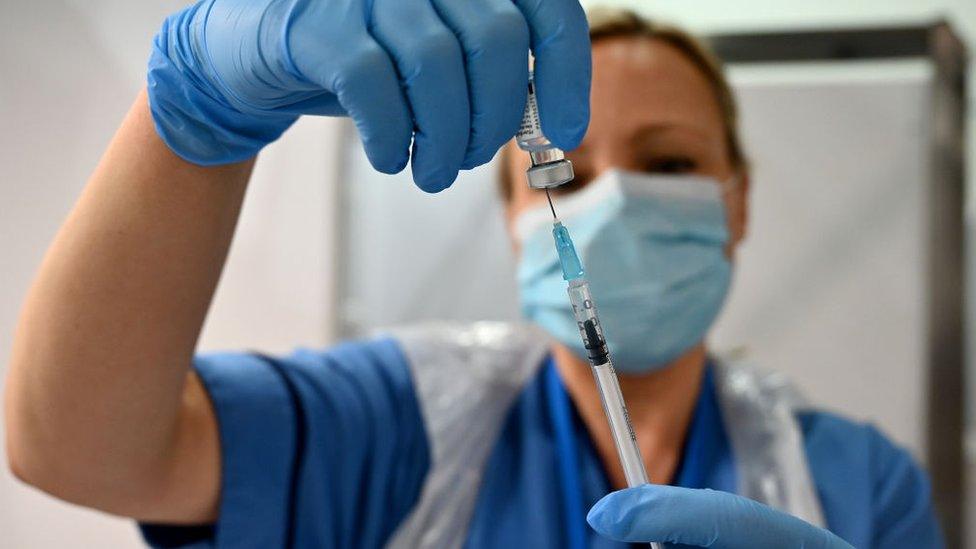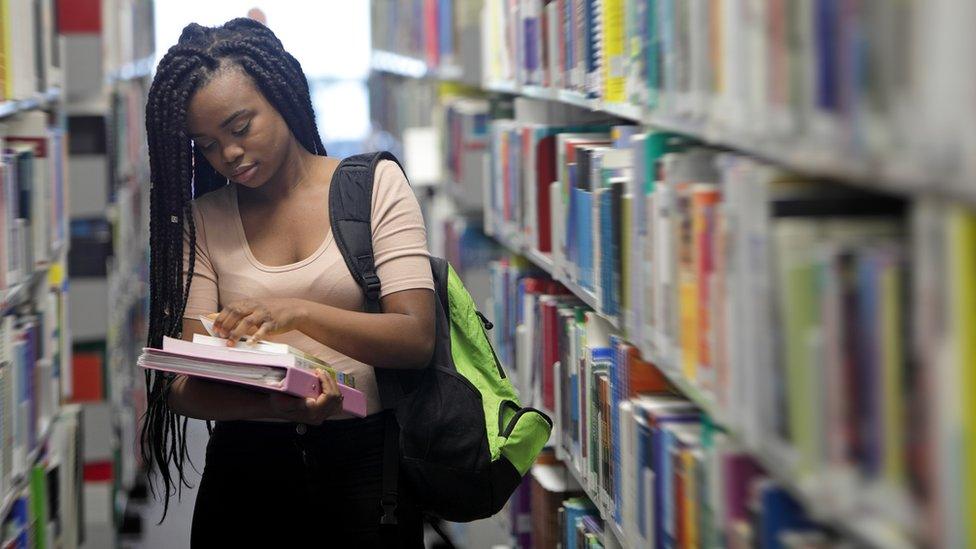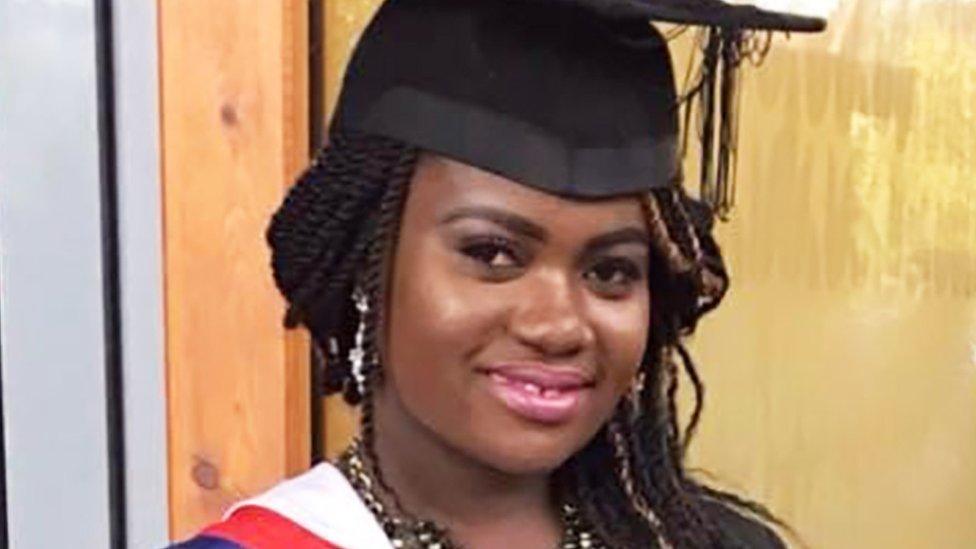Covid-19: 'Mix and match' vaccines trial expanded and black youth 'hit hardest' by unemployment
- Published
Here are five things you need to know about the coronavirus pandemic this Wednesday morning. We'll have another update for you this evening.
1. 'Mix and match' UK Covid vaccine trial expanded
A mix and match Covid vaccine trial is being expanded as we await the results of the first stage of the study. The UK trial is looking at whether two-jab vaccines can be mixed with different types. More than 800 people have so far taken part in the Com-Cov study, with the results expected next month. Experts are trying to find out whether combining vaccines might give broader, longer-lasting immunity against the virus and new variants of it, and also offer more flexibility for vaccine rollout. Health experts generally agree that mixing and matching vaccines such as Pfizer and AstraZeneca jabs should be safe and the trial will check for any side-effects or unwanted reactions. If you're an adult over 50 who has had a first dose of Pfizer or AstraZeneca you can apply to take part.


2. Black youth unemployment 'hits 35% in pandemic'
Young black people have been hardest hit by unemployment during the pandemic, new research indicates. Over the past year, the UK jobless rate for young black people rose by more than a third to 35%, the Resolution Foundation think tank said. That compared with a rate of 24% for young people of Asian descent and a rate of 13% for young white people, both up three percentage points. The foundation said Covid had widened existing gaps between ethnic groups. It added that young people in general had borne the brunt of job losses in lockdown, because they disproportionately worked in sectors hit by the crisis, such as hospitality and leisure.


3. Nurse's family yet to receive GoFundMe money
The family of a nurse who died with Covid-19 have yet to receive any money from a fundraising campaign which names them as beneficiaries. Mary Agyapong, 28, died after giving birth in April 2020 at Luton and Dunstable Hospital, where she worked. A GoFundMe page set up by family friend Rhoda Asiedu has raised more than £186,000 and her lawyers said the money had been placed into a trust. Ms Agyapong's widower, Ernest Boateng, said he found it "surprising" he had not been involved.


4. Students in lockdown
Students across the UK are due to return to classes after the Easter break, with many having spent much of the past year learning from home and going to online classes. Here's what three teenagers, who feel they benefited from lockdown learning, think.
WATCH: Lockdown learning 'made me feel a lot more confident'

5. The remote island where every adult is now vaccinated
It may be one of the UK's most remote communities but tiny Fair Isle - with a population of just 48 people - can now claim to be one of the safest. The Scottish island - located between Orkney and Shetland - is famed for its knitwear and migratory birds. It only got a reliable 24-hour-a-day electricity supply in 2018. This week, vials of AstraZeneca vaccine were flown in on a small plane, meaning every adult on the island was able to have their second dose. It was a practical solution to a tricky problem. The logistics of vaccinating the furthest-flung communities along the edges of Scotland were challenging, to say the least.

Fair Isle is one of the UK's most remote islands

And don't forget...
Find more information, advice and guides on our coronavirus page.
As you're getting used to going back to the shops, the gym, hairdressers and pubs again, why not find out what you can expect when the next stages of lockdown restrictions are eased?



What questions do you have about coronavirus?
In some cases, your question will be published, displaying your name, age and location as you provide it, unless you state otherwise. Your contact details will never be published. Please ensure you have read our terms & conditions and privacy policy.
Use this form to ask your question:
If you are reading this page and can't see the form you will need to visit the mobile version of the BBC website to submit your question or send them via email to YourQuestions@bbc.co.uk, external. Please include your name, age and location with any question you send in.

A DIFFERENT TAKE ON THE BIGGEST FOOTBALL STORIES: From Man U to Watford with The Squad
"AT ONE POINT I THOUGHT MY LIFE WAS OVER": The 'friendly fire' in my brain
